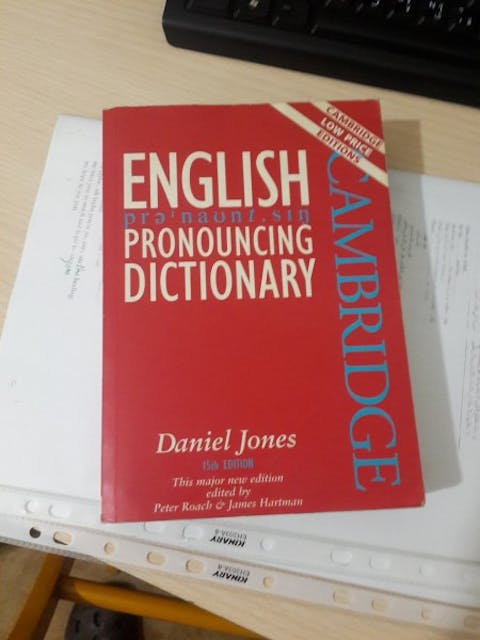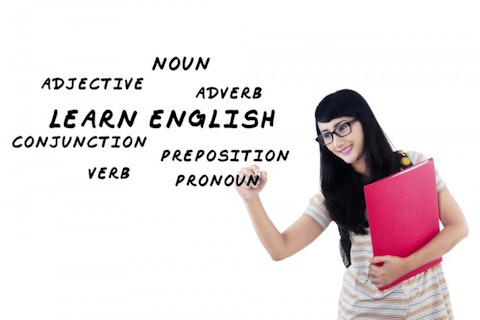These 11 common English mistakes made by native speakers illustrate how tricky English can be. Every language has its quirks, but English seems to take the cake when it comes to linguistic peculiarities. For every rule, there is at least one exception. In fact, rule exceptions are the only consistent rule in English. Considering the history of British Isles and how modern English came to be, this is to be expected, but knowing that doesn’t make it any easier to learn the damn thing, unlike some of the easiest second languages for English speakers.

SK Design/Shutterstock.com
The 20th century saw English becoming a lingua franca of the world. The chances are that everywhere you go, you will find somebody that speaks it or someone who wishes they did. Without getting into the reasons for this phenomenon, it is, in general, a good thing, as it has made communication between various people much easier. While lax grammar and syntax may be OK for Internet chats and Facebook, any serious conversation will require adhering to the rules (and exceptions) of the language. Making some of the common mistakes, like confusing “then” and “than” will be tolerated for people who learn English as a second language, but any native speaker making them will be scrutinized for them in any formal affair. Using a correct English grammar will always be seen as a positive sign.
While there are some rules that seem complicated, like a dangling preposition or ending a question with a preposition, common mistakes on our list are quite simple and easily avoided, especially for native speakers. These are some of the most basic rules (and exceptions) that most of the people have learned in elementary school. Yet, either through a lapse in concentration or even ignorance, even the native speakers continue to ignore them. All of them can be avoided by simply concentrating on what you are about to say or write.
Just because native speakers make these common mistakes doesn’t mean you have to as well. Let’s see how to avoid them.
11. Your or you’re
We start with a pretty common mistake in written English. “Your” is a possessive adjective, as in “your house”, while “you’re” is a contraction from “you are”.

B Calkins/Shutterstock.com
10. Its or it’s
Similar to the above mistake, “its” is a possessive adjective (or pronoun) while “it’s” is a contraction from “it is”. Both of these can be avoided by focusing on what you want to say.

9. Could of or could have
“Could have” is used to express something that could have happened in the past, but it didn’t. “Could of” doesn’t exist. The mistake originated from “could have” contracted form – could’ve – pronounced similar to could of. It is rarely seen in written form, because once you see it written down, you realize that it doesn’t make any sense. Unfortunately, it is pretty common in spoken language and teeth-grindingly painful to see it written.

8. Fewer or less
This is also very common and widespread mistake, often seen in supermarkets. “Five items of less” is wrong, I’m afraid. It should be “Five items and fewer”. Less is for uncountable nouns, like water or sugar, while few is for countable ones, like cars and items.

7. Amount or number
Again, countable and uncountable nouns. Learn the difference between the two. If you can count it, it’s a number, if you can’t, it’s an amount.

6. To or too
This one is almost undetectable in spoken language, but in written form it is glaring. “To” is a preposition, while “too” means as well or also. You can’t be “to hot”, it’s rather “too hot”.

5. Then or than
The similarity in spelling is the cause of fifth among common English mistakes made by native speakers. “Then” is used to describe the passage of time, while “than” is reserved for comparison.

4. Me or I
Ah, the curse of objective vs. subjective pronouns. It is both quite common and quite simple to avoid actually. Are you doing something or is something done to you? The subject form would be “I am going to school”, meaning I am performing an action. The object form would be “John is giving me the ball”, meaning I have something done to me.

Creativa Images/Shutterstock.com
3. Who or whom
To better distinguish between these two, we’ll need an example.
We made a decision to support John.
If our question refers to people who made a decision, it will be “Who made the decision?” since we are asking about the subject of the sentence. If we want to know about the object of support, it will be “Whom do you support?”

2. Past participle or past tense
Irregular verbs can be very confusing, especially if both past participle and past tense forms are similar. Is it shrunk or shrank? Drunk or drank? Rang or rung? Unfortunately, the only way to avoid this mistake is to memorize them and pay attention to the tense you are using.

Gustavo Frazao/Shutterstock.com
1. To be or not to be
To be is the first auxiliary verb both native speakers and ESL students learn about. When to use am, are, is, was, and were has been drilled into our brain since primary school, yet it is quite common English mistakes made by native speakers that it’s infuriating. Using expressions like “We was” or “I is” or, God forbid, “Is our children learning?” is the quickest way to be perceived as illiterate in almost any company.

Feng Yu/Shutterstock.com





